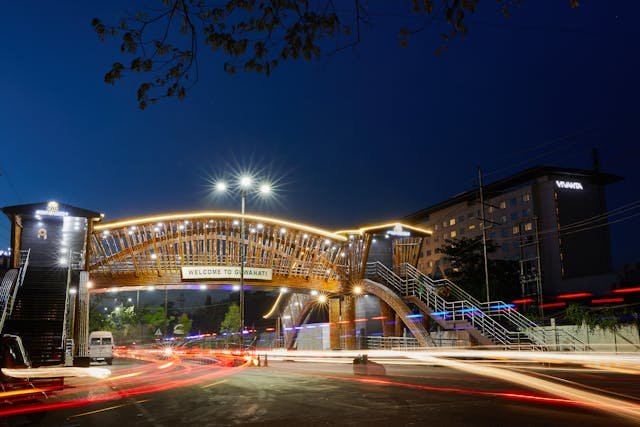If you’re looking for prosthetic care in the Northeast, Guwahati is one of the best places to begin.
From first consultations to fittings, rehab, and support—this city is opening new doors for people living with limb differences. Whether you’re coming from Assam or another Northeastern state, this guide will walk you through the whole journey.
We’ll cover how to reach Guwahati easily, where to stay during treatment, and what kinds of prosthetics you’ll find here. You’ll also learn how after-care works and how to make the most of your trip.
Let’s start with why Guwahati is becoming the go-to destination for prosthetics in the Northeast.
Why Guwahati Is Emerging as a Prosthetic Hub in the Northeast
A Central Location for the Region
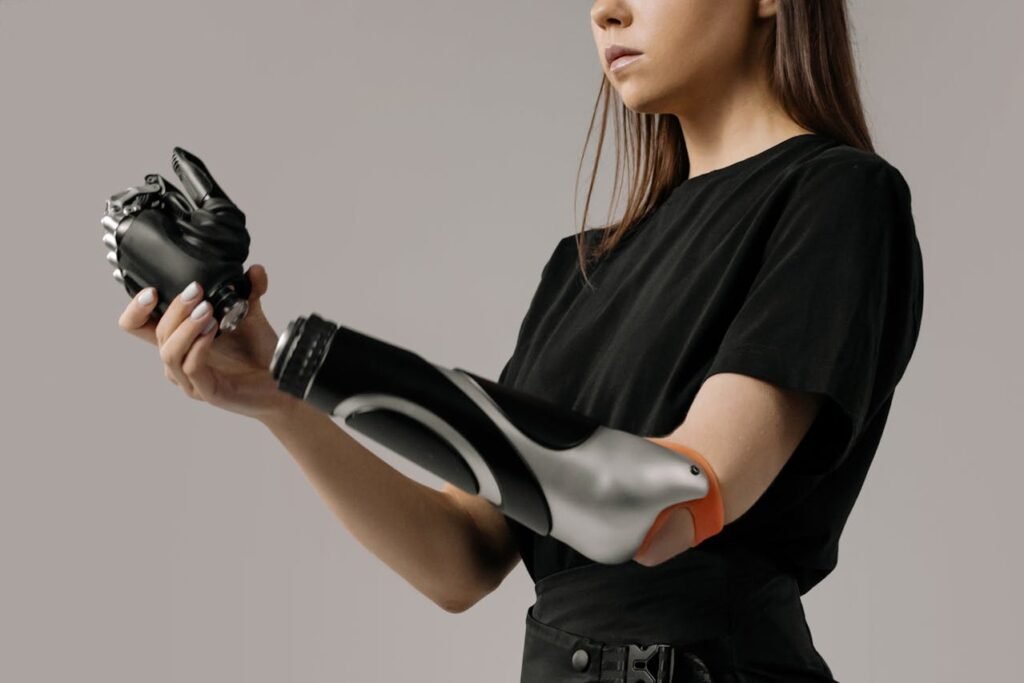
Guwahati is the heart of the Northeast.
It connects all the states around it—Meghalaya, Nagaland, Manipur, Arunachal Pradesh, Mizoram, Tripura, and Sikkim. If you’re living in any of these states, Guwahati is often the closest big city where advanced medical care is available.
This makes it a natural choice for prosthetic users looking for quality service without traveling too far.
A City with Better Medical Infrastructure
Over the years, Guwahati has built a strong network of hospitals, rehab centers, and diagnostics labs.
You’ll find both government and private hospitals here, many of which are now offering specialized prosthetic care. Some even have in-house orthotic and prosthetic departments.
This means you can do everything in one place—from getting an assessment to being fitted and trained.
Lower Costs Compared to Bigger Cities
One big reason people choose Guwahati is affordability.
Compared to cities like Delhi, Bangalore, or Mumbai, everything in Guwahati is easier on the pocket—whether it’s the cost of the limb, the hospital stay, or even hotel accommodation for your family.
You can get the same level of care and technology, but without the heavy travel and extra expenses.
Types of Prosthetic Limbs Available in Guwahati
Body-Powered or Mechanical Limbs
These are some of the most commonly used limbs in the region.
They are simple, durable, and don’t need electricity or batteries. You control them using body movement—like your shoulder or upper arm.
They work well for those looking for budget-friendly options or living in areas where charging a bionic limb is difficult.
Myoelectric or Bionic Limbs
Myoelectric limbs like Grippy™ are now becoming available in Guwahati too.
These advanced limbs read your muscle signals and let you control the hand with your natural movements. Some models even give you feedback so you know how much pressure you’re applying.
They’re great for people who want more natural control or need to do fine work like writing, using tools, or typing.
Cosmetic or Passive Limbs
Not all users need movement. Some just want a limb that looks natural, especially in public or professional settings.
Cosmetic limbs are shaped and painted to look like a real hand or leg. They don’t move but help with self-image and confidence.
Guwahati clinics offer custom cosmetic limbs made for weddings, school, or social settings.
Prosthetics for Children
Children need different care.
Their limbs grow fast, so prosthetics need to be updated regularly. The material has to be soft, light, and safe for play.
Some hospitals in Guwahati now offer pediatric prosthetic services, making it easier for families in the region to get care close to home.
Getting Started with a Prosthetic in Guwahati
Your First Visit and Consultation
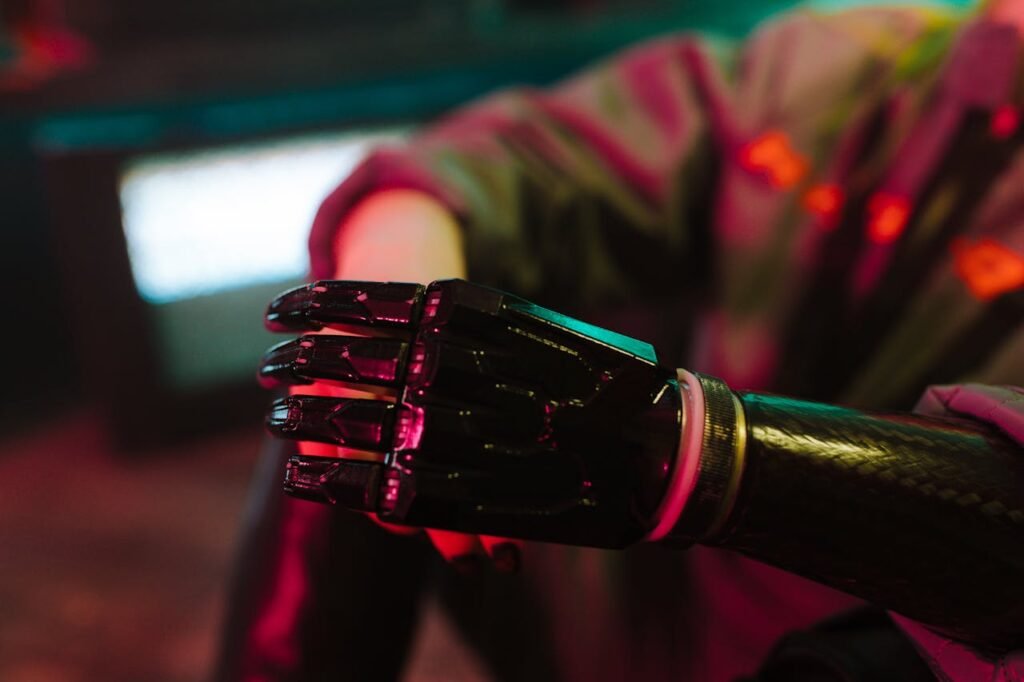
Your journey starts with a detailed medical check-up.
A doctor or prosthetist will examine your limb, check muscle strength, and understand your daily lifestyle. Based on that, they’ll guide you toward the best type of prosthetic.
This first meeting sets the tone for everything. So don’t rush it—ask all the questions you have.
Choosing the Right Type of Limb
After your assessment, you’ll be shown options.
This might include trying out demo limbs, watching others use them, or even testing how your muscles respond to sensors. Clinics that offer Grippy™ can give you a free video or in-person demo.
Each limb has its own strengths. The team will help you pick what suits your life, not just your body.
The Fitting Process
Once you decide, the clinic will create a custom socket for you.
This socket must fit your limb perfectly. Some clinics now use 3D scanning, which means faster and more accurate results.
You may have a few trial fittings over a few days. That’s normal. The goal is to make the socket feel comfortable and secure for everyday use.
Learning to Use the Limb
Wearing the limb is only the beginning.
You’ll be trained on how to wear it, remove it, clean it, and use it for daily activities. Tasks like holding a spoon, buttoning a shirt, or tying shoelaces may seem hard at first—but they get easier every day.
With the right guidance and effort, the limb becomes part of you.
How to Reach Guwahati for Prosthetic Treatment
Well-Connected Flights and Railways
Guwahati is one of the most accessible cities in the Northeast.
Lokpriya Gopinath Bordoloi International Airport has direct flights from Delhi, Kolkata, Mumbai, Bangalore, Chennai, and many smaller cities. Flights are frequent and fairly affordable, especially if booked in advance.
If you’re coming by train, Guwahati Railway Station is a major hub. It connects to almost every part of India through long-distance express and superfast trains.
For people in nearby states like Meghalaya, Nagaland, or Arunachal Pradesh, Guwahati is usually the nearest rail or air link.
Affordable Bus and Road Travel
For short-distance travel, buses and shared taxis are common.
Assam State Transport (ASTC) runs buses from nearby towns. Private buses also connect Guwahati to places like Shillong, Tezpur, Silchar, and Dibrugarh.
Roads have improved in recent years, so travel is smoother now. If you’re traveling with a family member or a caregiver, road travel may be more comfortable and flexible.
Local Transport Within the City
Once you’re in Guwahati, getting around is simple.
Auto-rickshaws, taxis, and app-based services like Ola and Uber are available across the city. They’re affordable and reliable.
If you’re visiting hospitals or prosthetic clinics regularly, ask your stay provider if they can help arrange transport. Some clinics also offer pick-up and drop-off services during the rehab period.
Where to Stay During Your Treatment in Guwahati
Guest Houses and Budget Hotels
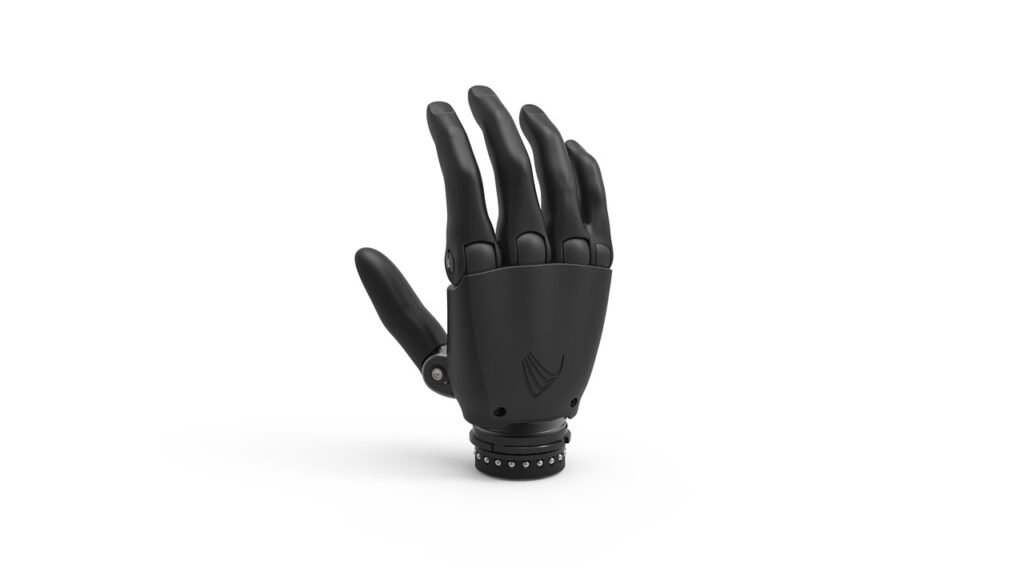
Guwahati has many places to stay for patients and their families.
Near hospitals like GNRC, Gauhati Medical College, and Hayat Hospital, you’ll find guest houses that are safe and clean. These are usually run by locals and offer food, water, and laundry at low rates.
If you’re planning to stay for more than a week, ask for long-stay discounts. Many hosts are happy to help if they know you’re here for medical reasons.
Service Apartments for Longer Stay
If you’re coming from far and need to stay for a few weeks, consider a service apartment.
These come with a small kitchen, so you can cook your own meals. They usually have Wi-Fi, beds, chairs, and an elevator—which is useful if you have mobility issues.
Some apartments are located close to major hospitals and clinics. A few even offer wheelchair access and in-room dining services.
What to Look for in a Stay
Choose a place that is close to your clinic or hospital.
This saves travel time and energy, especially during daily visits. Look for clean bathrooms, quiet surroundings, and helpful staff.
If you’re bringing your child or an elderly person for prosthetic care, check if the place has 24-hour support, lifts, and room service.
Comfort and peace are very important when recovering or adjusting to a new limb.
After-Care Services in Guwahati
Cleaning and Maintenance Support
Prosthetics need regular care to last long.
In Guwahati, many private clinics now offer scheduled checkups. These include cleaning, replacing parts, and checking socket fit.
If you’re using a myoelectric hand like Grippy™, the clinic will also guide you on battery care, sensor cleaning, and grip settings.
This keeps your limb working smoothly and prevents problems later on.
Repairs and Emergency Help
If something breaks or doesn’t feel right, don’t panic.
Call your clinic. Most centers in Guwahati can fix mechanical issues quickly. If the issue is bigger—like a battery or motor problem—they’ll guide you on the next steps.
RoboBionics also offers phone and video support for Grippy™ users. You don’t have to travel for every issue—we try to solve as much as possible from a distance.
Adjustments and Socket Refitting
As your body changes, your prosthetic might need a few tweaks.
Maybe you’ve gained or lost weight, or the socket feels loose after a few months. These are common and nothing to worry about.
Clinics usually offer socket refits every 6 to 12 months, especially for active users. A good fit means more comfort and less skin trouble.
Emotional and Physical Rehab After Fitting
Getting Back to Normal Life
The first few weeks after getting a prosthetic are all about learning and adjusting.
You might feel tired or unsure. That’s okay. Rehab isn’t just about the body—it’s about your whole self.
In Guwahati, you’ll find trained physiotherapists and occupational therapists who help you learn how to move, grip, and do everyday things again.
Small wins—like holding a glass or typing a message—will build your confidence quickly.
Staying Motivated Through the Process
Recovery takes time. Some days will feel slow. But every step counts.
Set small goals for yourself. Maybe it’s walking across the room, lifting a bottle, or brushing your hair. Every goal you meet is a reminder of how far you’ve come.
Your therapist will guide you, but the real work happens when you practice every day. Stay committed, and you’ll see progress sooner than you think.
Family and Peer Support
You’re not in this alone.
Family support matters a lot during this time. A kind word, a helping hand, or even just someone to talk to can make hard days easier.
Some hospitals and NGOs in Guwahati also connect users with peer mentors—people who have been through the same journey.
Talking to someone who understands your fears and hopes can help more than medicine sometimes.
Building a Strong Prosthetic Support Ecosystem in Guwahati
Opportunities for Clinics and Hospitals in the Northeast
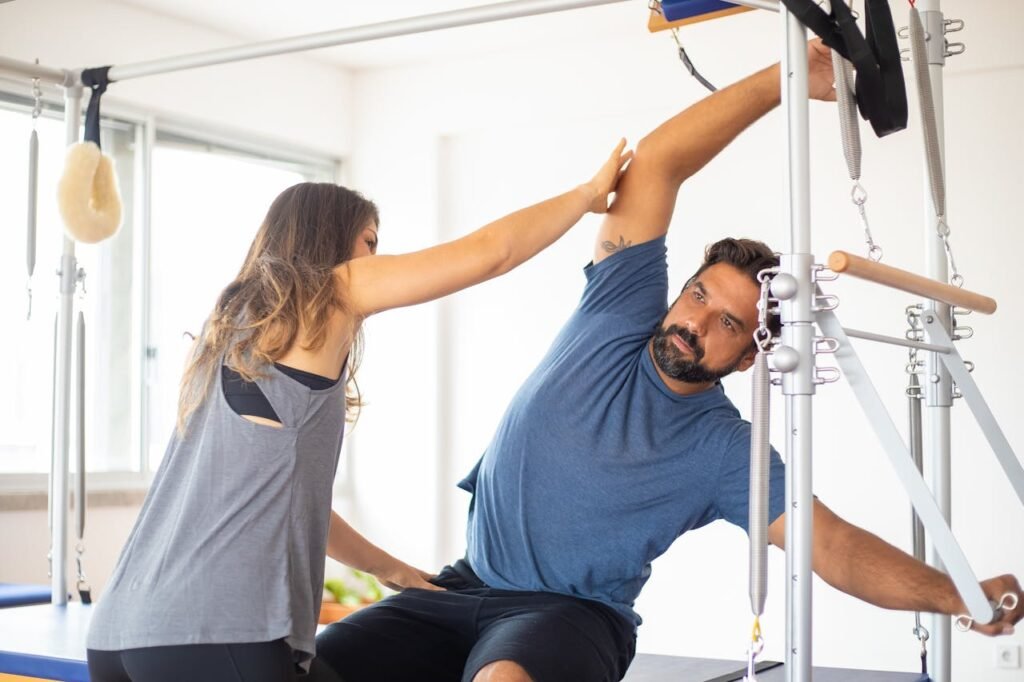
The demand for prosthetics in the Northeast is rising—but the supply of trained services is still catching up.
For clinics, physiotherapy centers, and hospitals in Guwahati, this opens a unique opportunity. By setting up prosthetic units or partnering with manufacturers like RoboBionics, they can serve an underserved population while building a strong value-based practice.
Many hospitals already have rehabilitation departments. Adding prosthetic services doesn’t always mean heavy investment—it can start with simple things like trained staff, demo fittings, and regular follow-up support.
These small steps can not only change lives but also create long-term patient trust and loyalty.
Becoming a Regional Referral Center
Guwahati sits in a strategic position as the gateway to the Northeast.
Clinics that establish themselves as trusted prosthetic centers can attract patients not just from Assam, but from Arunachal, Nagaland, Manipur, and even Bhutan and Bangladesh.
This makes it ideal for setting up referral systems with smaller towns. If you run a clinic or NGO in a rural area, consider partnering with a Guwahati-based center. You can refer patients for advanced fittings, while handling their rehab and check-ups locally.
This win-win model allows both centers to grow while providing the best care to the user.
Actionable Advice: Hosting Community Awareness Camps
One of the most powerful ways to reach new users is through awareness.
People often delay prosthetic care because they don’t know it exists—or think it’s too expensive or painful. Hosting small, community-based awareness camps can change that.
Clinics and hospitals in Guwahati can organize monthly camps in collaboration with local bodies, NGOs, or Rotary groups. These camps can:
- Offer free consultations or basic assessments
- Demonstrate different types of limbs including bionic ones
- Explain the fitting and after-care process in simple language
- Help people understand cost, funding, or EMI options
Even a small camp can reach 50–100 people who may not otherwise seek help. It also positions your clinic as a trusted, community-focused provider.
Collaborating with Physiotherapy and Ortho Clinics
Most prosthetic users need regular physiotherapy. But many therapy centers don’t offer prosthetic fittings—and many prosthetic providers don’t offer in-house therapy.
This is where collaboration can make a difference.
If you run a physiotherapy or orthopedic clinic in Guwahati, consider partnering with a prosthetic provider like RoboBionics. When a patient gets a limb fitted, you become the go-to center for their rehab. And when your patients need a prosthetic, you can refer them to a trusted fitting partner.
This network approach not only improves care but keeps revenue and referrals flowing within local healthcare providers.
Digital Education for Remote Patients
Northeast India is filled with remote areas where people don’t have access to prosthetic education.
One powerful tool is video.
Clinics and prosthetic experts in Guwahati can create short, simple videos explaining what prosthetics are, how they work, and what recovery looks like. These can be shared on WhatsApp, YouTube, or even shown at rural PHCs (Primary Health Centres).
Make sure the videos:
- Use local languages and subtitles
- Feature real users from the region
- Focus on positivity, simplicity, and hope
This digital content can become your best outreach tool. It builds trust before people even visit your clinic.
Tapping Into Government Schemes and NGO Support
There are many government schemes and CSR-backed programs that support people with disabilities, but most people don’t know about them.
If you’re a healthcare provider in Guwahati, take the time to understand:
- ADIP Scheme (by the Ministry of Social Justice and Empowerment)
- District Disability Rehabilitation Centres (DDRC)
- State welfare boards for persons with disabilities
Patients who qualify for these schemes can get financial aid for their prosthetics. Clinics that help users apply or guide them through the paperwork stand out from others. This builds a reputation for care, not just commerce.
Also, partnering with local NGOs can help you reach more families, especially in tribal and remote regions. NGOs often act as trusted messengers in places where city hospitals may seem unreachable or intimidating.
Preparing for the Future: Training the Next Generation
The future of prosthetics in the Northeast depends on skilled people.
Guwahati’s medical colleges, tech institutes, and rehab centers can start short-term training programs in prosthetics and orthotics. Even certificate courses or internships with existing providers can help.
Encouraging local youth to take up this field ensures that care grows from within the region—not just from outside.
It also helps patients feel more comfortable when their provider speaks their language, understands their culture, and shares their community background.
The Role of Grippy™ in Guwahati’s Prosthetic Landscape
World-Class Technology, Made for India
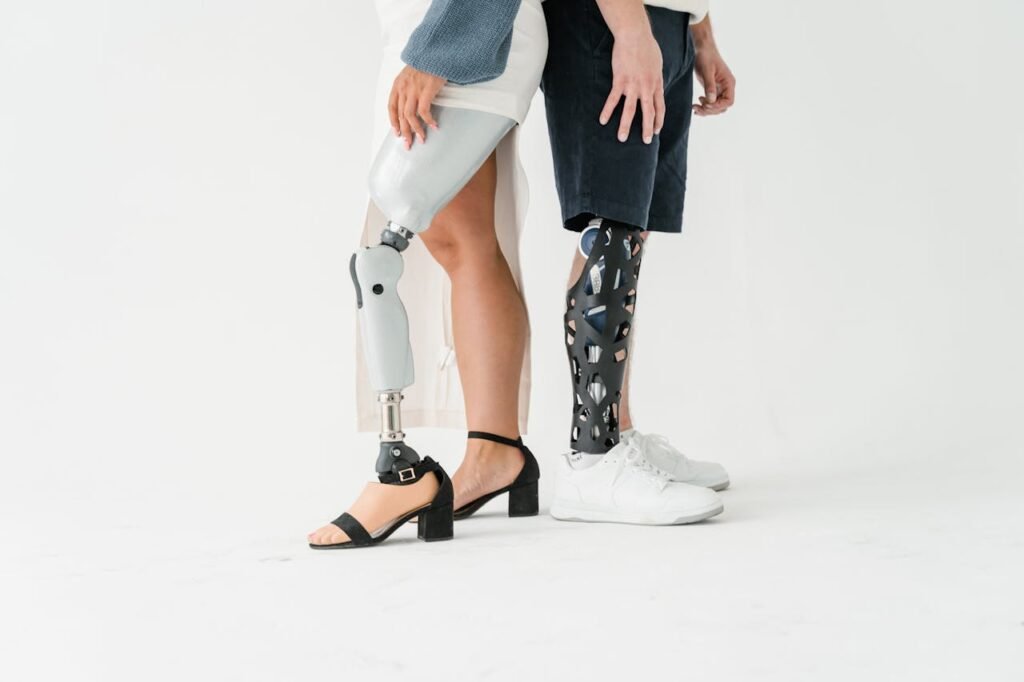
Grippy™ is a smart, battery-powered bionic hand developed by RoboBionics for people with below-elbow amputations. It uses your own muscle signals to move, grip, and release—making everyday actions feel natural again.
Unlike imported options that cost over ₹10 lakh, Grippy™ is made in India and priced between ₹2.15 to ₹3 lakh. That’s a huge difference, especially for families in the Northeast looking for quality care without the burden of high costs.
In Guwahati, clinics are starting to work closely with RoboBionics to offer Grippy™ fittings, servicing, and support—so users can get advanced prosthetics without leaving their home state.
Sense of Touch™: A Game-Changer
What makes Grippy™ different is its Sense of Touch™ technology.
This gives users tactile feedback—so they can feel how hard they’re gripping something. That way, you can pick up a glass without breaking it, or hold your phone without dropping it.
This kind of feedback helps users regain control and confidence much faster. It’s like training your brain to trust your new limb, step by step.
Training and Support in Guwahati
Grippy™ isn’t just about the product—it’s about the experience.
We offer one-on-one support during and after fitting. In Guwahati, we’re expanding our network of partner clinics, so you can get trained close to home.
You also get video tutorials, on-call support, and easy servicing options. That means fewer trips and more peace of mind.
If you want to see how it works, you can book a free demo here: https://www.robobionics.in/bookdemo
Stories That Inspire
We’ve seen users from Assam and nearby states get back to work, drive again, go to college, and even play sports after using Grippy™.
One young man from Tezpur told us he never thought he could write again. After just two weeks of training, he was taking notes in class without any help. Another user from Meghalaya, a mother of two, said she finally felt like herself again—able to cook, clean, and care for her family.
These aren’t just success stories. They’re proof that with the right technology and support, life can become full again.
Final Thoughts: A New Chapter, A New You
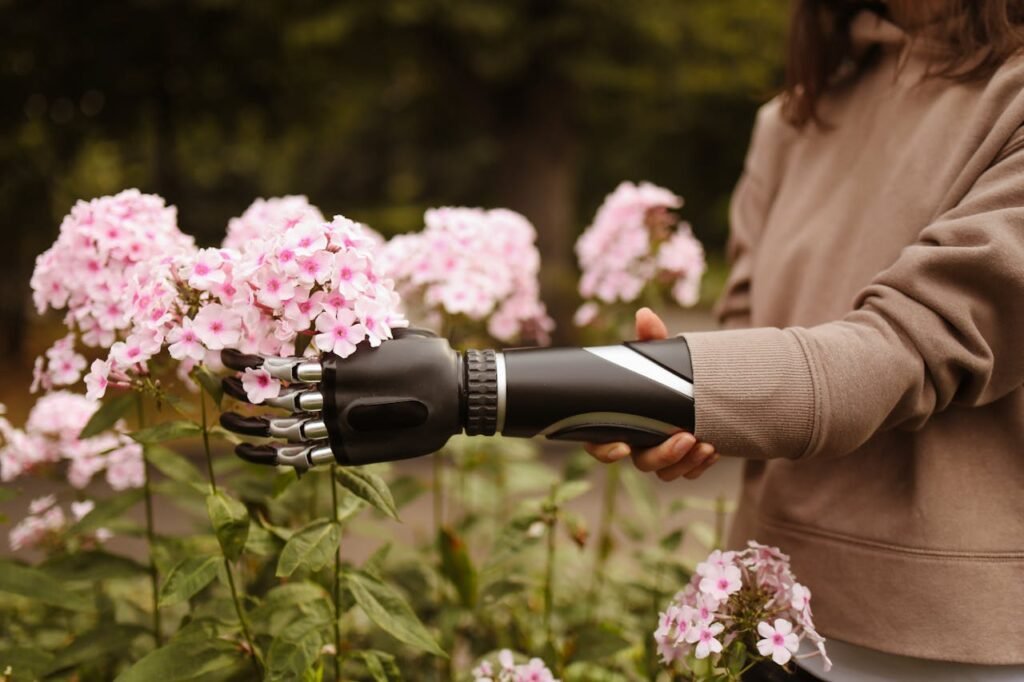
Living with limb loss can feel overwhelming. But it doesn’t have to stop your life.
With cities like Guwahati becoming centers for affordable, reliable prosthetic care, you now have more options than ever before. Whether you’re from Assam, Arunachal, Manipur, or any other Northeastern state—help is closer than you think.
You deserve a limb that fits well, works smoothly, and helps you live without fear or limits. You deserve a team that listens, supports, and walks beside you through the journey.
At RoboBionics, that’s what we’re here for.
We don’t just build bionic hands. We help people rebuild their lives—with care, dignity, and innovation.
If you’re ready to take the next step, or even just want to explore your options, we’re here to guide you.
Book your free demo today at https://www.robobionics.in/bookdemo
Let’s begin this journey together—with hope, strength, and a Grippy™ hand to help you move forward.



